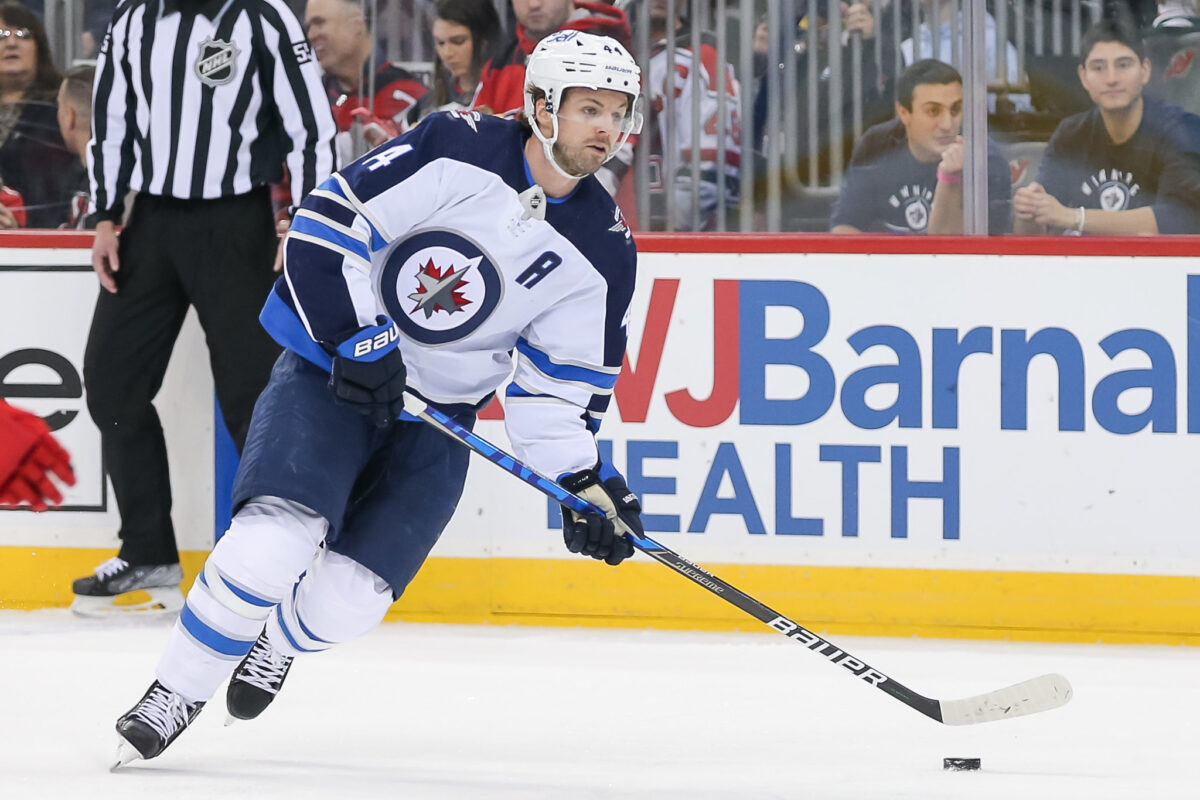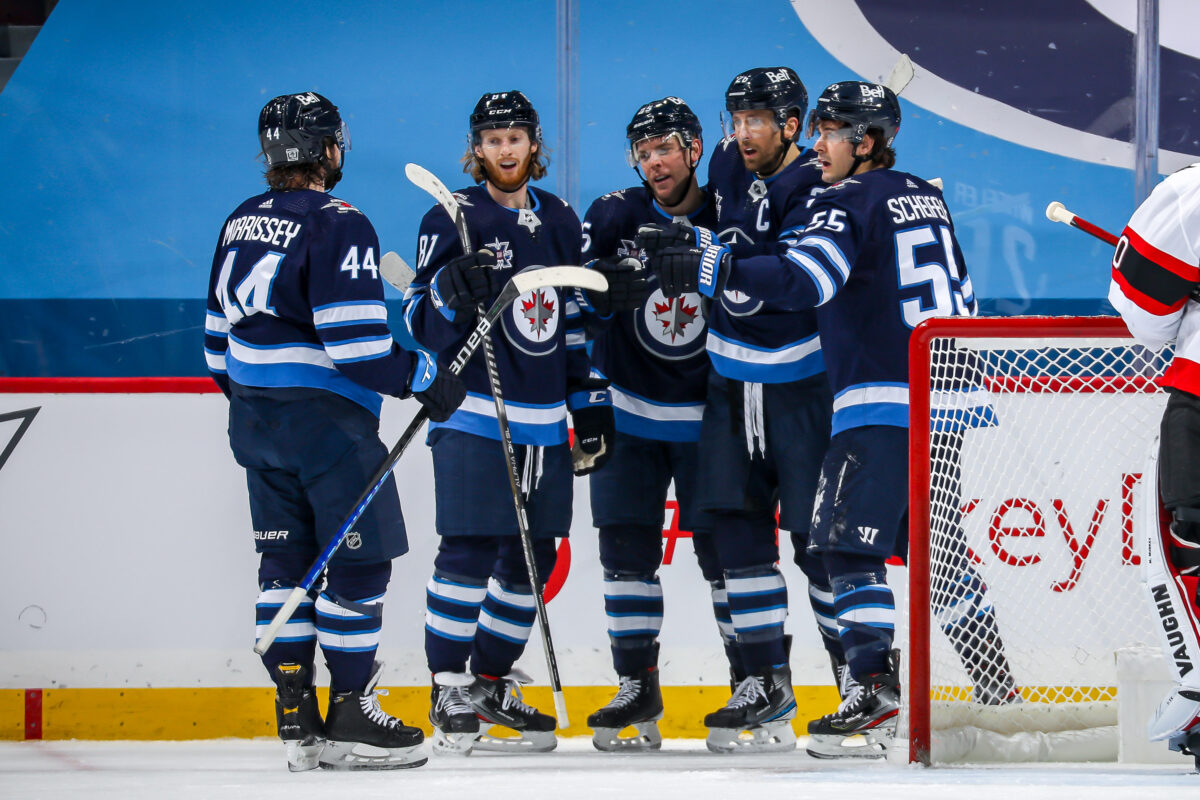The Winnipeg Jets’ 2021-22 season was a disappointment, as they came into the season considered a Stanley Cup contender but drastically underperformed, finishing sixth in the Central Division and well out of the playoff picture.
In this series, we’ll take a look back on the season, player-by-player, and grade their individual performances with an eye toward their future with the team.
After a rough 2020-21 campaign, Josh Morrissey got back on the right track while the team around him crumbled.
Morrissey Enjoyed a Bounce-Back Season
To say Morrissey took a step back in 2020-21 would be an understatement. His struggles raised many questions about whether he could be trusted in the Jets’ top four. Trade rumours began to circle the 27-year-old defenceman, who is under contract until the 2027-28 offseason.
Related: Jets’ Dubois and Morrissey Back on Track
Morrissey gained confidence in his game and became a visibly better skater and puck handler in 2021-22. He’s always been strong defending the rush, but he seemed to take a creative jump offensively that few saw coming this season. Playing with Dylan DeMelo was good for many reasons, but having a stay-at-home defenceman on his pairing allowed Morrissey to take more chances offensively.

The analytics back up the eye test. This season, Morrissey outshot and out-chanced all of his competition at even strength. He played almost 500 minutes on the top pairing with Tucker Poolman last season and never seemed to find chemistry with him. Playing over 700 minutes with DeMelo showed who he plays with best.
| Advanced Stat | 2020-21 | 2021-22 |
|---|---|---|
| Corsi % | 49.15% | 53.85% |
| Expected Goals % | 47.45% | 54.93% |
| High Danger Chance % | 41.72% | 53.32% |
As an alternate captain, Morrissey led by example and gave a solid effort night in and night out. Questions loomed down the stretch regarding the Jets’ effort level, but the steady defenceman stayed cool and focused throughout. He became a more prominent leader within the organization, and his on-ice results were the driving force.
Morrissey’s Special Teams Play Showed Real Growth
Morrissey achieved career-highs in goals with 12 and points with 37. That’s a major improvement over last season when he only scored four goals and 21 points. One of the main reasons for this jump was his ability to play on the Jets’ top power-play unit. Neal Pionk quarterbacked it last season, but Morrissey’s offensive game was too improved to keep him off the top unit.
Morrissey started the season on the second unit but quickly worked his way up and found instant success. The Jets’ power play succeeded at a 21.05 percent success rate this season, which was slightly below the league average.
Morrissey was never considered a penalty-killing specialist, and this season was no different as his results were much better defensively at five-on-five. Similar to the rest of the Jets’ defence, he sometimes struggled with positioning and boxing out in front of the net, but his ability to shut plays down in the neutral zone reduced the number of times he needed to box out. For a top-pairing defenceman, he did more than enough on special teams to warrant his 23:40 of average ice time this season.
Jets Will Need Morrissey to Continue Elite Play
Some of the core pieces of this franchise may be on the move this season, but Morrissey is as safe as anyone. If he continues to play at this level, his $6.25 million cap hit will become a steal. Having a top-pairing defenceman who defends the rush well is a must in the modern NHL, and the Jets would be foolish to trade away their best defenceman at that price.
There are plenty of questions surrounding Winnipeg’s defence heading into next season. After acquiring Nate Schmidt and Brenden Dillon in the offseason, many thought the core would take a major step forward. Instead, they now have more questions than answers about their blue line. Ville Heinola, Dylan Samberg and Declan Chisholm continue to dominate the American Hockey League (AHL) and look poised for NHL reps. General manager Kevin Cheveldayoff, fresh off a three-year extension, will have to make room for the defensive prospects they’ve spent years developing.

Amidst all of these questions, the Jets’ assistant captain will have to be a mentor and staple for years to come. As he will likely see fluctuation amongst his partners in the near future, it’s very unlikely he gets moved anytime soon.
Morrissey will look to follow up his elite season next year with a new head coach presumably being hired. It will be interesting to see how well he can adapt to a new system, but he will be far from the biggest question within the organization.